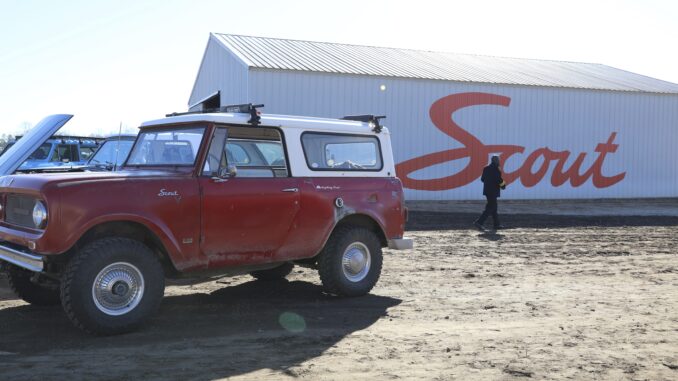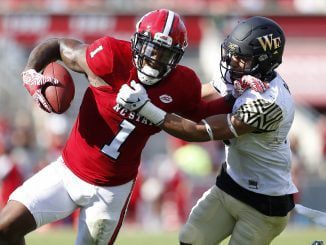
BLYTHEWOOD, S.C — Volkswagen-backed Scout Motors is making a massive bet in the electric SUV market with a carefully cultivated experience that will allow some customers to buy the company’s vehicle in minutes on an app and then use it to handle everything after, from repairs to updates.
But without some help from lawmakers, that will be impossible in South Carolina, where the company is pouring billions into its new auto plant and a Scout Motors experience like BMW’s test track in Greer.
In a world where almost everything can be bought online, automobiles remain an exception. Supporters of the dealership model say the experience allows buyers to compare prices across several businesses.
Unlike a pair of pants, where color, style and size are about the only concerns, buying a car involves financing, state registration, taxes, regulations — and often a test drive.
South Carolina is one of about two dozen states that ban manufacturers from selling vehicles directly to consumers and instead require all new autos be purchased through a dealer. Scout would like to see that practice changed nationwide for all EV makers and figured it could start in its new backyard.
South Carolina also bans manufacturers from owning their own service centers, which means anyone who wants to own a Scout SUV must travel to another state to have it repaired or serviced.
The dealership structure requires local business owners to back what they sell and assure buyers get quality service on their vehicles. Auto dealers often have close ties to their communities, and cities could lose one of their biggest businesses and heftiest taxpayers.
“If for some reason the car is a lemon or the job isn’t getting done, they are the folks who live there, who pay their taxes and send their kids to school,” said Republican state Sen. Larry Grooms, who runs the South Carolina Senate Transportation Committee where any bill changing the rules would likely end up.
Scout is determined to get the law changed to help them and other EV makers like Tesla and Rivian. They have gone on a media blitz that includes stories in local outlets. They are also trying to secure support in a Republican-dominated state with an argument that consumers should be free to buy whatever they wish directly, without a middleman.
Scout also is armed with a 2000 Attorney General’s Office opinion on the bill which weeks later would become law and serve as the most recent major overhaul to South Carolina’s laws on new car buying.
“If a manufacturer cannot sell his own product but must constitutionally pass that product through a ‘middleman,’ then our understanding of the free-market system is way off base. The Internet is a worldwide web for trade, not a local instrument for protectionism,” wrote then-Republican state Attorney General Charlie Condon in the opinion, which is not binding and an educated guess on what a judge might do if someone sued over the law.
Scout officials say using a dealership-only business model would make the vehicles aimed at the under-$60,000 market too expensive and complicate what the company wants to be a seamless experience.
Gov. Henry McMaster touts the Scout plant in Blythewood as one of his biggest economic development scores. The Republican has been to both the February 2024 groundbreaking of the massive facility and this month’s ceremony to mark work starting on a new $150 million interstate interchange the state is paying for to help get workers, parts and new SUVs in and out.
McMaster recently said he wants to protect dealers, but he wants to let Scout sell directly, too.
“Over the last few years with the internet and Amazon and all the other customers are looking for their freedom and that ability to order things direct without a middleman,” McMaster said.
Scout is trying to find a niche in a growing but uncertain U.S. electric vehicle market. President Donald Trump’s election could threaten the industry.
The original Scout Motors made gasoline-powered vehicles for about 20 years when it was owned by International Harvester. The new Scout Motors is trying to tap into a mix of nostalgia and technology. Key to Scout’s success will be its app, Scout Vice President of Growth Cody Thacker said.
He envisions a Scout buyer scrolling through types and colors, performance and comfort options and hundreds of other choices. Financing, titling and paperwork would all be handled in minutes instead of the hours it takes at dealerships. That custom SUV could then be delivered to the buyer’s door.



